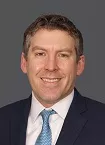The Consumer Financial Protection Bureau (CFPB) has made no secret of its focus on (and antipathy toward) certain lawful fees charged by banks and other financial institutions. Targets of particular ire are overdraft fees and non-sufficient fund (NSF) fees. In December 2021, the agency issued a report on NSF fees; then, in January 2022, it issued a request for information on so-called "junk fees," which included NSF fees. Then, on June 16, 2022, the agency publicly announced in a blog post that it would make NSF fees a focus of its examinations.
The post explained that the CFPB already had been "piloting a supervision effort" focusing on NSF fees and had already collected data from 20 institutions in 5 areas:
- Total annual dollar amount consumers receive in overdraft coverage compared to the amount of fees charged.
- Annual dollar amount of overdraft fees charged per active checking account.
- Annual dollar amount of NSF fees charged per active checking account.
- Prevalence of frequent overdrafters: the share of active checking accounts with more than 6 and more than 12 overdraft and/or NSF fees per year.
- Share of active checking accounts that are opted into overdraft programs for ATM and one-time debit transactions.
From there, the agency announced that it would be seeking an expanded set of information from institutions regarding their related fee practices more broadly. The 7-page questionnaire covers a wide range of topics, including the total and average amounts of fees collected in connection with NSF and overdraft fees, participation levels in overdraft protection programs, and various data points regarding how the institution's overdraft and NSF fees operate in practice.
The CFPB explained that it would use this information "to identify institutions for further examination and review" and "share this information with other regulators." But provided that these fees are being collected with consumer authorization and consistent with the CFPB's own regulations, it's not clear what the CFPB intends to do with this information. The agency has previously attempted to shame financial institutions into dropping overdraft or NSF fees by publicizing which institutions charged those fees.
Regardless, financial institutions should consider reviewing their fee practices, particularly NSF or overdraft fees, and consider the potential regulatory, litigation, reputational and other risks associated with these fees to ensure that their practices remain within their risk tolerances. The CFPB's public statements certainly seem to indicate this is a current risk and active priority of the CFPB.
Visit us at mayerbrown.com
Mayer Brown is a global legal services provider comprising legal practices that are separate entities (the "Mayer Brown Practices"). The Mayer Brown Practices are: Mayer Brown LLP and Mayer Brown Europe - Brussels LLP, both limited liability partnerships established in Illinois USA; Mayer Brown International LLP, a limited liability partnership incorporated in England and Wales (authorized and regulated by the Solicitors Regulation Authority and registered in England and Wales number OC 303359); Mayer Brown, a SELAS established in France; Mayer Brown JSM, a Hong Kong partnership and its associated entities in Asia; and Tauil & Chequer Advogados, a Brazilian law partnership with which Mayer Brown is associated. "Mayer Brown" and the Mayer Brown logo are the trademarks of the Mayer Brown Practices in their respective jurisdictions.
© Copyright 2020. The Mayer Brown Practices. All rights reserved.
This Mayer Brown article provides information and comments on legal issues and developments of interest. The foregoing is not a comprehensive treatment of the subject matter covered and is not intended to provide legal advice. Readers should seek specific legal advice before taking any action with respect to the matters discussed herein.


